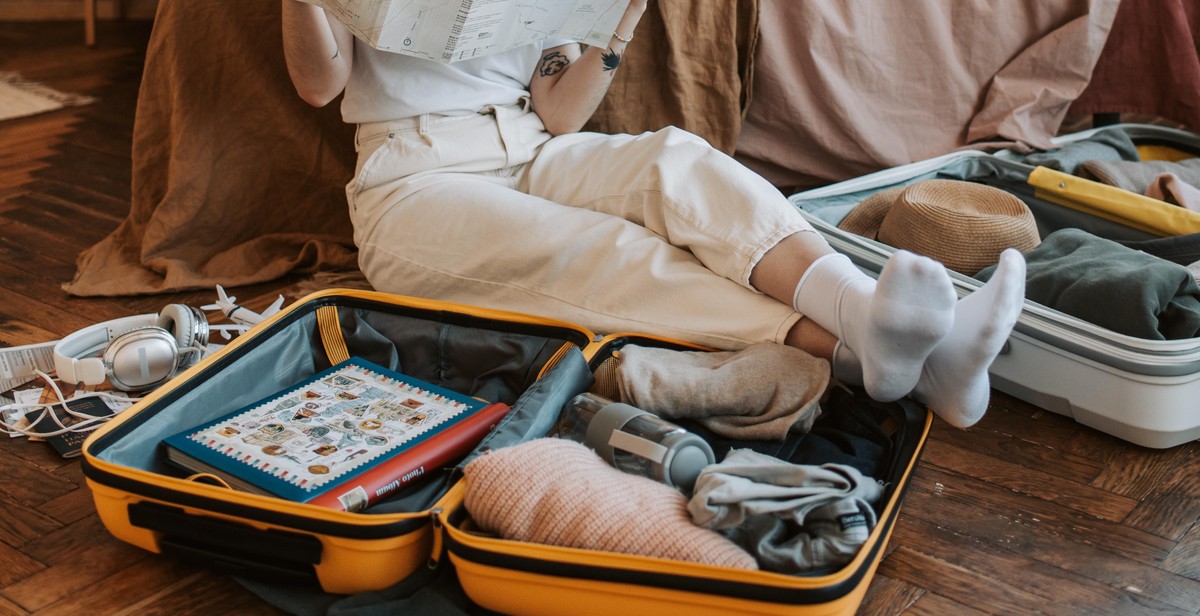Understanding and Handling Emotional Baggage in Relationships
Love is a beautiful thing, but it can also be complicated. One of the biggest challenges in any relationship is dealing with emotional baggage. Emotional baggage refers to unresolved issues from past relationships or experiences that can negatively impact current relationships. It can manifest in various ways, such as trust issues, fear of vulnerability, or difficulty with intimacy.
As a love and relationships psychology guru with years of experience, I have seen firsthand how emotional baggage can cause problems in relationships. However, I have also learned that it is possible to overcome these challenges and build healthy, fulfilling relationships.
The Impact of Emotional Baggage
Emotional baggage can have a significant impact on relationships. It can cause people to push others away or create barriers to intimacy. It can also make it difficult for people to trust their partners or fully commit to a relationship.
Furthermore, emotional baggage can cause people to repeat negative patterns in their relationships. For example, someone who has been hurt in the past may be more likely to attract partners who are emotionally unavailable or abusive.
How to Handle Emotional Baggage
Handling emotional baggage requires a willingness to confront past issues and work through them. It also involves being open and honest with your partner about your feelings and concerns.
There are many strategies for handling emotional baggage, including therapy, journaling, and mindfulness practices. It is important to find what works best for you and your partner.
In this article, we will explore the impact of emotional baggage on relationships and provide practical tips for handling it. By understanding and addressing emotional baggage, you can build stronger, more fulfilling relationships.

What is Emotional Baggage?
Emotional baggage refers to the emotional experiences, beliefs, and patterns that we carry with us from our past. These experiences can be positive or negative and can shape the way we perceive ourselves and others, as well as how we behave in relationships.
Emotional baggage can come from a variety of sources, such as childhood experiences, past relationships, or traumatic events. It can manifest in different ways, such as fear of abandonment, trust issues, or difficulty expressing emotions.
Defining Emotional Baggage
Emotional baggage can be defined as the emotional weight that we carry with us from past experiences. This weight can impact our thoughts, behaviors, and emotions in current relationships. It can be caused by a variety of factors, such as:
- Childhood experiences
- Relationship trauma
- Unresolved conflicts
- Low self-esteem
- Attachment issues
Emotional baggage can be difficult to recognize and overcome, but it is important to acknowledge and address in order to have healthy relationships.
Causes of Emotional Baggage
Emotional baggage can be caused by a variety of experiences and situations. Some common causes of emotional baggage include:
- Childhood experiences: Childhood experiences can have a profound impact on our emotional development and can shape the way we perceive ourselves and others. Negative experiences such as abuse, neglect, or abandonment can lead to emotional baggage later in life.
- Relationship trauma: Traumatic experiences in past relationships, such as infidelity or betrayal, can lead to emotional baggage and affect our ability to trust and connect with others.
- Unresolved conflicts: Unresolved conflicts from past relationships or experiences can lead to emotional baggage and impact our ability to communicate effectively in current relationships.
- Low self-esteem: Low self-esteem can lead to negative self-talk and beliefs about ourselves, which can contribute to emotional baggage in relationships.
- Attachment issues: Attachment issues, such as fear of abandonment or difficulty forming close relationships, can lead to emotional baggage and affect our ability to connect with others.
Understanding the causes of emotional baggage can help us identify and address it in ourselves and our partners, leading to healthier and more fulfilling relationships.

How Emotional Baggage Affects Relationships
Emotional baggage can have a significant impact on relationships. It can cause trust issues, communication breakdowns, and a fear of vulnerability.
Trust Issues
When one or both partners bring emotional baggage into a relationship, trust issues can arise. For example, if one partner has been cheated on in the past, they may struggle to trust their current partner. This lack of trust can lead to jealousy, suspicion, and insecurity. It can also cause the person to constantly seek reassurance from their partner, which can be exhausting for both parties.
It’s important to remember that trust issues are not always the result of something the current partner has done. It may be a result of past experiences that have left emotional scars. It’s important for both partners to communicate openly and honestly about their feelings and work together to build trust in the relationship.
Communication Breakdowns
Emotional baggage can also lead to communication breakdowns in a relationship. If one partner has unresolved issues from their past, they may struggle to express their emotions effectively. This can lead to misunderstandings, arguments, and a breakdown in communication.
It’s important for both partners to be aware of their communication style and be willing to work on it. This may involve learning new communication skills, such as active listening and empathy. It may also involve seeking the help of a professional therapist to work through any emotional baggage that may be affecting communication in the relationship.
Fear of Vulnerability
Emotional baggage can also cause a fear of vulnerability in a relationship. If one partner has been hurt in the past, they may struggle to open up emotionally to their current partner. This can lead to a lack of intimacy and emotional connection in the relationship.
It’s important for both partners to be patient and understanding with each other. Building trust and creating a safe space for vulnerability can take time, but it’s essential for a healthy relationship. It may also be helpful to seek the help of a professional therapist to work through any emotional barriers that may be preventing vulnerability in the relationship.
Conclusion
Emotional baggage can have a significant impact on relationships. It’s important for both partners to be aware of their emotional baggage and work together to overcome any issues that may arise. Building trust, improving communication, and creating a safe space for vulnerability are essential for a healthy and happy relationship.

How to Handle Emotional Baggage in Relationships
Emotional baggage can be a heavy burden to carry, especially in a relationship. It can affect your ability to trust, communicate, and connect with your partner. However, it is possible to handle emotional baggage in a healthy way and create a strong and fulfilling relationship. Here are some tips on how to handle emotional baggage in relationships:
Identify Your Own Emotional Baggage
The first step in handling emotional baggage is to identify your own. Take some time to reflect on your past experiences and relationships that may have left emotional scars. Ask yourself how these experiences have affected your beliefs, attitudes, and behaviors in relationships. It is important to acknowledge and accept your emotional baggage before you can work on letting it go.
Communicate with Your Partner
Communication is key in any relationship, especially when it comes to handling emotional baggage. Share your past experiences and how they have affected you with your partner. Be honest and vulnerable, and allow your partner to do the same. This can help build trust and understanding between you and your partner. It is also important to communicate your needs and boundaries in the relationship. Let your partner know what triggers your emotional baggage and how they can support you.
Seek Professional Help
Handling emotional baggage can be a challenging and complex process. Seeking professional help from a therapist or counselor can be beneficial. They can provide a safe and supportive space for you to explore and process your emotions. They can also offer tools and techniques to help you manage your emotional baggage and improve your relationships.
Remember, handling emotional baggage is a journey, not a destination. It takes time, patience, and effort to heal and let go of past experiences. But with the right mindset and support, you can create a healthy and fulfilling relationship.

Conclusion
Understanding and handling emotional baggage is crucial in any relationship. We all have our past experiences and traumas that shape who we are today. However, it is essential to recognize that our past does not define us and that we have the power to overcome our emotional baggage.
Communication is key in any relationship, and it is essential to talk openly and honestly about our emotional baggage. It is only when we are willing to share our vulnerabilities and fears that we can truly connect with our partner.
It’s also important to remember that emotional baggage is not a one-time thing. It’s an ongoing process that requires patience, understanding, and support from both partners. It’s important to be kind to ourselves and our partners as we work through our emotional baggage together.
Tips for handling emotional baggage in relationships
- Be open and honest about your emotional baggage
- Listen actively and support your partner as they share their emotional baggage
- Practice patience and compassion
- Seek professional help if needed
Remember, emotional baggage is a part of life, and it’s how we handle it that determines the success of our relationships. With patience, understanding, and support, we can overcome our emotional baggage and create healthy and fulfilling relationships.
